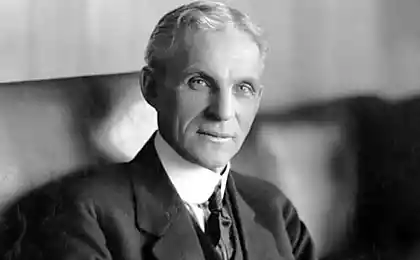314
The need for approval and 9 more neurotic human needs
Did you ever man who had seemed pathological need to please others? According to Karen Horney, this behavior is associated with the neurotic need for love and approval. In his book "self-analysis" (1942) Horney, outlined a theory describing the different types of neurotic behavior resulting from excessive use of problem solving strategies caused by underlying anxiety, and to meet the inadequate needs. These include the need for power, prestige, and love.
The Theory Of Karen Horney Psychoanalyst Karen Horney developed one of the most known theories of neurosis. She believed that neurosis is the result of anxiety caused by problems in interpersonal relationships. Her theory proposes that strategies normally used to cope with anxiety, can be used so often that over time, begin to substitute needs.
According to Horney, children basic anxiety (and therefore neurosis) could lead to a number of consequences, including, "... direct or indirect domination, indifference, erratic behavior, lack of respect for the individual needs of the child, the lack of real control, belittle the role of relationships, excessive admiration or its absence, the lack of warmth in relations, need to take the side of one of the parents in their disagreements, too much responsibility or lack of it, over-protection, isolation from other children, injustice, discrimination, unfulfilled promises, hostile atmosphere, etc." (1945).
The 10 neurotic needs can be clustered in three main categories:
Needs that bring us closer to others. These neurotic needs cause people to seek approval and recognition of others; such people are often described as pushy or Intrusive due to the fact that they are looking for approval and love.
Needs that alienate us from others. It's neurotic needs give rise to hostility and anti-social behaviour. People, which they prevail, often called cold, indifferent, distant.
Needs that sets us against others. These neurotic needs result in hostility, but to want to control other people. These people are often called complex, overbearing and unkind.
So what makes these strategies of solving problems the neurotic? As Horney says, that excessive use of one or more of these styles of interpersonal relations.
Thirty seven million six hundred sixty eight thousand two hundred ninety five
Neurotic needsIn his book "self-analysis" Horney identified 10 neurotic needs:
The neurotic need for affection and approval. It includes the desire to be loved, the desire to please others and meet their expectations. People with this type of potrebnosti extremely sensitive to rejection and criticism and fear the anger or hostile attitude on the part of others.
Neurotic need for the managing partner. It includes the need to focus on the partner. People with this type of requirement are experiencing a very strong fear of being abandoned by their partners. Often, these people attach an exaggerated value love and believe that having a partner will solve all the problems in their lives.
The neurotic need for clear restrictions. People with this need prefer to remain inconspicuous. They are unpretentious and used to be satisfied with little. They don't want material things, often downplaying their own needs and underestimating their own talents and abilities.
The neurotic need for power. Those who have dominated this need seek power for its own sake. They tend to admire strength and despise weakness at any opportunity they will take advantage of the other person or begin to dominate him. These people are afraid of limitations, powerlessness, and uncontrollable situations.
The neurotic need for exploitation of others. These people see others only from the point of view of what is possible with them. Such people are proud of their ability to use other people and are often focused on manipulating others to achieve desired goals, including power, money or sex.
The neurotic need for social recognition. Persons with the need for prestige and assess themselves and others, in terms of public recognition. Material possessions, personality characteristics, professional accomplishments, and even close relationships are evaluated on the basis of this parameter. Such people are often afraid to get into an awkward situation or lose social status.
The neurotic need for personal admiration of him. Individuals with a neurotic need for personal admiration, a mostly narcissistic egoists who have had an exaggerated view of themselves. They want to be admired, accepting this opinion, and not what they actually are.
The neurotic need for ambition. Says Horney, basic anxiety, people make themselves achieve more and more. These people are afraid of failure and feel a constant need for achievement more than others, and sometimes even compared to its own success.
Neurotic need for self-sufficiency and independence. These people have the mentality of "loner". They seek to distance themselves from others to avoid attachment or dependence on other people.
Neurotic need for perfection and irrefutable. Such people constantly strive for complete infallibility. A common feature of this neurotic need is searching for personal flaws in order to quickly overcome them or hide. published
P. S. And remember, just changing your mind — together we change the world! ©
Join us in Facebook , Vkontakte, Odnoklassniki
Source: aboutyourself.ru/psi-lich/nevroticheskie-potrebnosti-po-karen-xorni.html
The Theory Of Karen Horney Psychoanalyst Karen Horney developed one of the most known theories of neurosis. She believed that neurosis is the result of anxiety caused by problems in interpersonal relationships. Her theory proposes that strategies normally used to cope with anxiety, can be used so often that over time, begin to substitute needs.
According to Horney, children basic anxiety (and therefore neurosis) could lead to a number of consequences, including, "... direct or indirect domination, indifference, erratic behavior, lack of respect for the individual needs of the child, the lack of real control, belittle the role of relationships, excessive admiration or its absence, the lack of warmth in relations, need to take the side of one of the parents in their disagreements, too much responsibility or lack of it, over-protection, isolation from other children, injustice, discrimination, unfulfilled promises, hostile atmosphere, etc." (1945).
The 10 neurotic needs can be clustered in three main categories:
Needs that bring us closer to others. These neurotic needs cause people to seek approval and recognition of others; such people are often described as pushy or Intrusive due to the fact that they are looking for approval and love.
Needs that alienate us from others. It's neurotic needs give rise to hostility and anti-social behaviour. People, which they prevail, often called cold, indifferent, distant.
Needs that sets us against others. These neurotic needs result in hostility, but to want to control other people. These people are often called complex, overbearing and unkind.
So what makes these strategies of solving problems the neurotic? As Horney says, that excessive use of one or more of these styles of interpersonal relations.
Thirty seven million six hundred sixty eight thousand two hundred ninety five
Neurotic needsIn his book "self-analysis" Horney identified 10 neurotic needs:
The neurotic need for affection and approval. It includes the desire to be loved, the desire to please others and meet their expectations. People with this type of potrebnosti extremely sensitive to rejection and criticism and fear the anger or hostile attitude on the part of others.
Neurotic need for the managing partner. It includes the need to focus on the partner. People with this type of requirement are experiencing a very strong fear of being abandoned by their partners. Often, these people attach an exaggerated value love and believe that having a partner will solve all the problems in their lives.
The neurotic need for clear restrictions. People with this need prefer to remain inconspicuous. They are unpretentious and used to be satisfied with little. They don't want material things, often downplaying their own needs and underestimating their own talents and abilities.
The neurotic need for power. Those who have dominated this need seek power for its own sake. They tend to admire strength and despise weakness at any opportunity they will take advantage of the other person or begin to dominate him. These people are afraid of limitations, powerlessness, and uncontrollable situations.
The neurotic need for exploitation of others. These people see others only from the point of view of what is possible with them. Such people are proud of their ability to use other people and are often focused on manipulating others to achieve desired goals, including power, money or sex.
The neurotic need for social recognition. Persons with the need for prestige and assess themselves and others, in terms of public recognition. Material possessions, personality characteristics, professional accomplishments, and even close relationships are evaluated on the basis of this parameter. Such people are often afraid to get into an awkward situation or lose social status.
The neurotic need for personal admiration of him. Individuals with a neurotic need for personal admiration, a mostly narcissistic egoists who have had an exaggerated view of themselves. They want to be admired, accepting this opinion, and not what they actually are.
The neurotic need for ambition. Says Horney, basic anxiety, people make themselves achieve more and more. These people are afraid of failure and feel a constant need for achievement more than others, and sometimes even compared to its own success.
Neurotic need for self-sufficiency and independence. These people have the mentality of "loner". They seek to distance themselves from others to avoid attachment or dependence on other people.
Neurotic need for perfection and irrefutable. Such people constantly strive for complete infallibility. A common feature of this neurotic need is searching for personal flaws in order to quickly overcome them or hide. published
P. S. And remember, just changing your mind — together we change the world! ©
Join us in Facebook , Vkontakte, Odnoklassniki
Source: aboutyourself.ru/psi-lich/nevroticheskie-potrebnosti-po-karen-xorni.html









